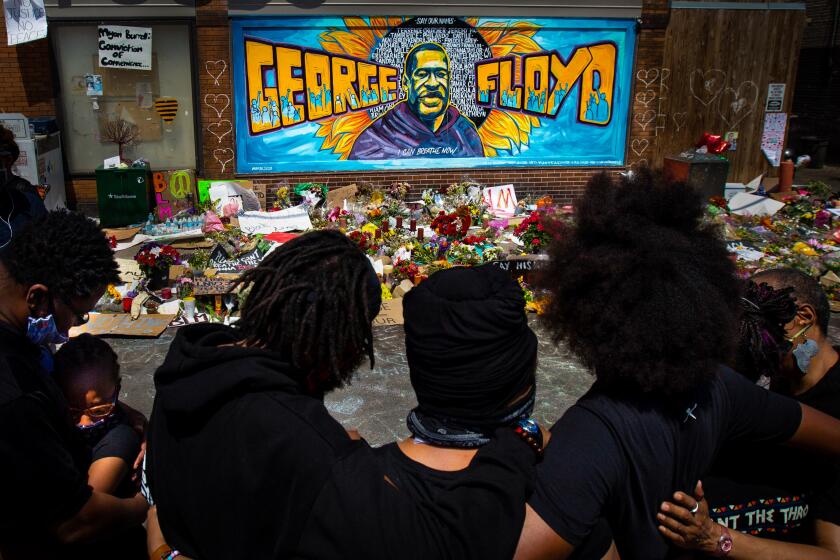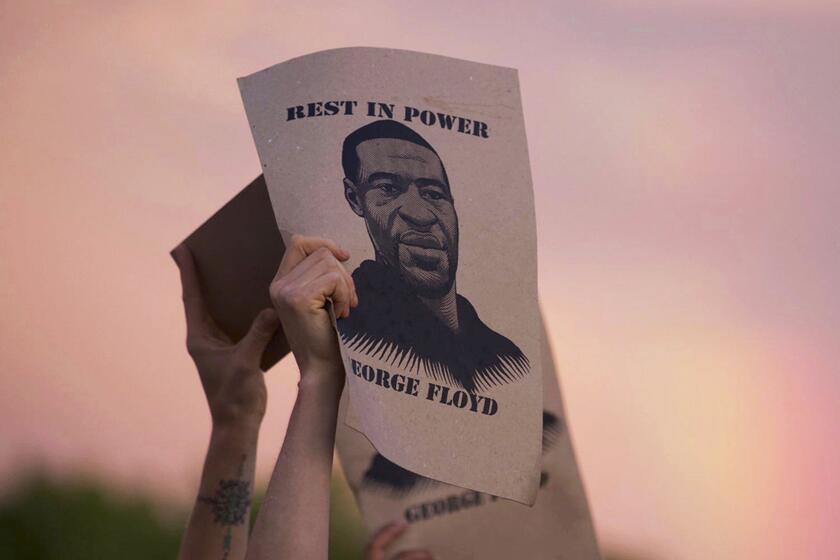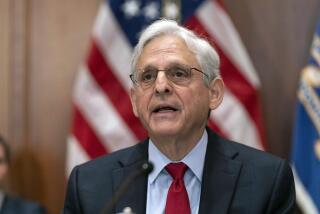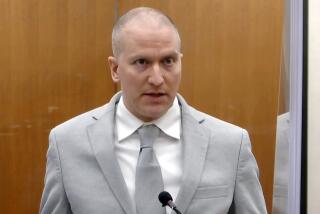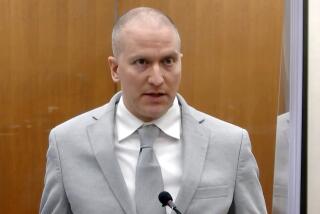Minneapolis courthouse draws crowd as jury starts deliberating in Derek Chauvin trial
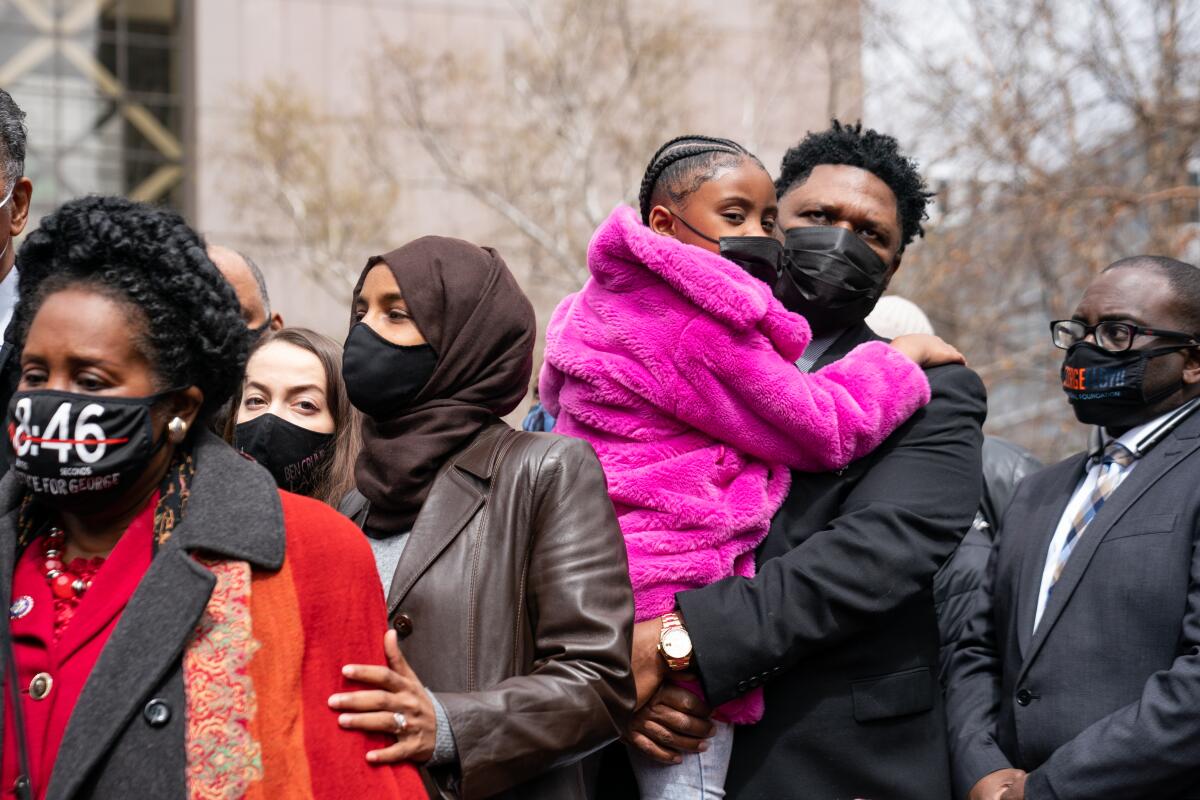
- Share via
MINNEAPOLIS — The fortified downtown courthouse became the epicenter of a tense city Monday as the jury began deliberating in the murder trial of former Minneapolis Police Officer Derek Chauvin.
Police patrolled the building’s perimeter as protesters’ ranks swelled during the day, many wearing shirts, carrying signs and flags in support of George Floyd, 46, the Black man Chauvin is accused of killing on May 25.
Jury reaches verdict in Derek Chauvin trial
Jury reaches a verdict in the murder trial of ex-Officer Derek Chauvin over the death of George Floyd. The verdict is to be read Tuesday afternoon.
For weeks, the Hennepin County Courthouse has been encircled by high fences and concrete barricades topped with barbed wire. Military vehicles are parked nearby, and surrounding buildings have been boarded up in anticipation that the verdict will provoke uprisings.
As lawyers for both sides delivered closing statements inside the high-rise courthouse Monday afternoon, passersby stopped to watch the proceedings on their phones.
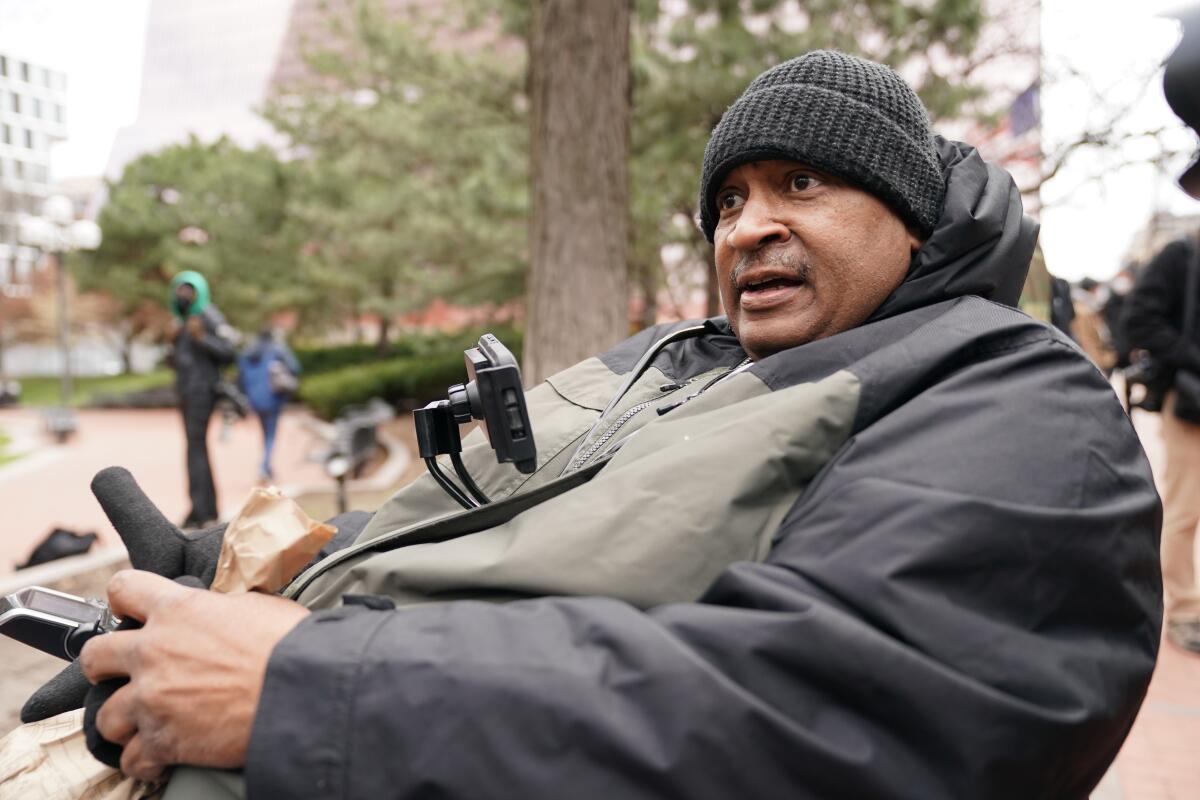
Michael Jones parked his motorized wheelchair outside the courthouse to livestream the court proceedings. Jones, 59, who is Black, said he was knocked over by Minneapolis police in his wheelchair three years ago, charged with trespassing and disorderly conduct — charges that prosecutors later threw out after seeing video of the incident.
Now social service director at Miracle Redemption Christian Center International Church, Jones said he sees the trial as a chance to hold police accountable — by convicting Chauvin of murder.
It’s a club no one wants to join. These Black families have lost loved ones to police brutality. The Chauvin trial could bring justice.
“Video is making a difference across the country, from Rodney King to George Floyd,” Jones said. “I hope we get justice because there’s more than enough video.”
During the trial’s lunch break, Jones watched as Floyd’s relatives emerged from the courthouse, joined by their lawyers and the Revs. Al Sharpton and Jesse Jackson. As Floyd’s 7-year-old daughter Gianna looked on, wearing a pink puffy coat and bows in her braids, his youngest brother, Rodney Floyd, 37, thanked residents and activists for their support.
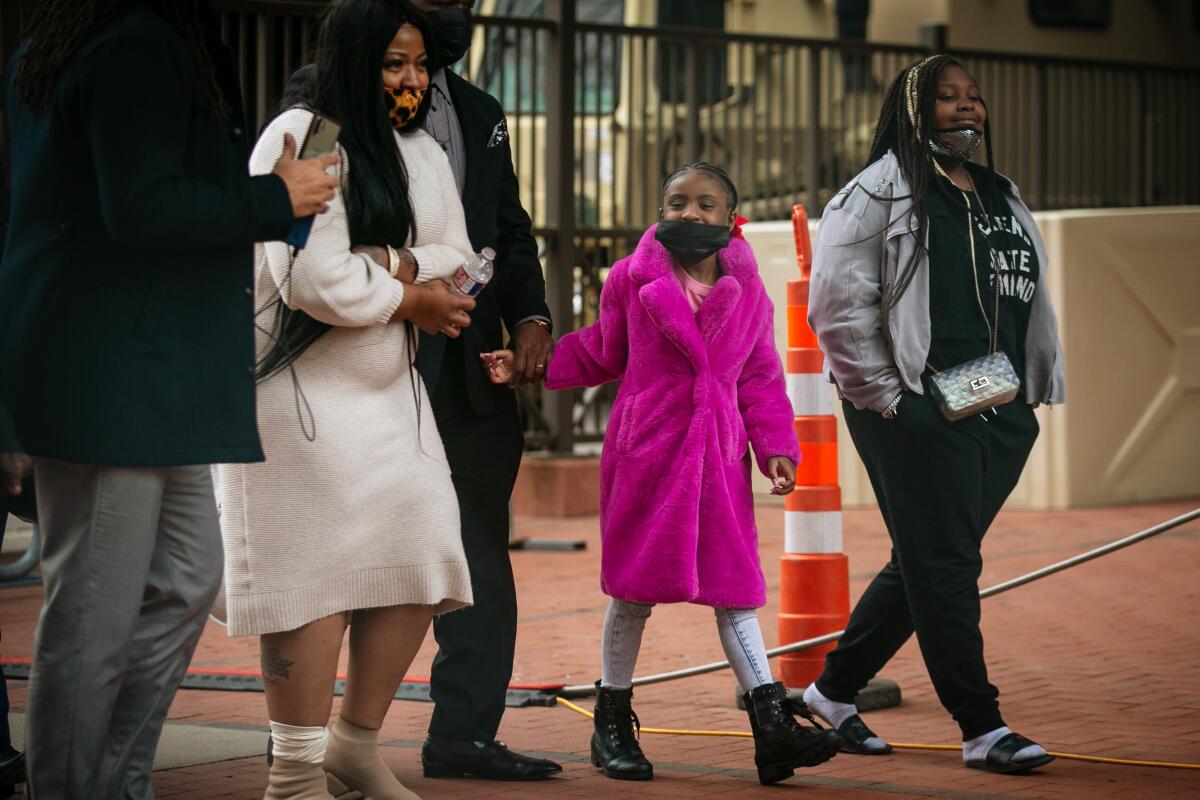
Minneapolis truck driver David Embaye knelt near Floyd’s family, filming video on his phone as they spoke and smiling. But he wasn’t optimistic the jury would convict Chauvin.
“I don’t have faith in the system,” said Embaye, 30, who is Black, visibly upset. “We’ve seen what happened in the past.”
Some in the crowd outside the courthouse who had traveled from out of state during what they considered a historic moment were more hopeful.
“I hope to God, for America’s sake, that this verdict comes back guilty,” said activist Hakim Fontes, 50, of Boston. “If it doesn’t, I believe it will be a strong uprising.”
George Floyd’s death in police custody in May touched off a nationwide reckoning on race and led to the trial of ex-officer Derek Chauvin.
Charles Sims made a pilgrimage to the courthouse from Mississippi to meet the Floyd family. Sims, 38, a retired U.S. Army soldier who served in Iraq, appeared in uniform and brush cut, holding a sign that said, “Great grandson of the creator of the Jim Crow laws, here to stand with the Floyd family.”
“I know the consequences of inaction,” he said. “I wanted to get ahead of the verdict, to see if we can end any of this needless bloodshed.”
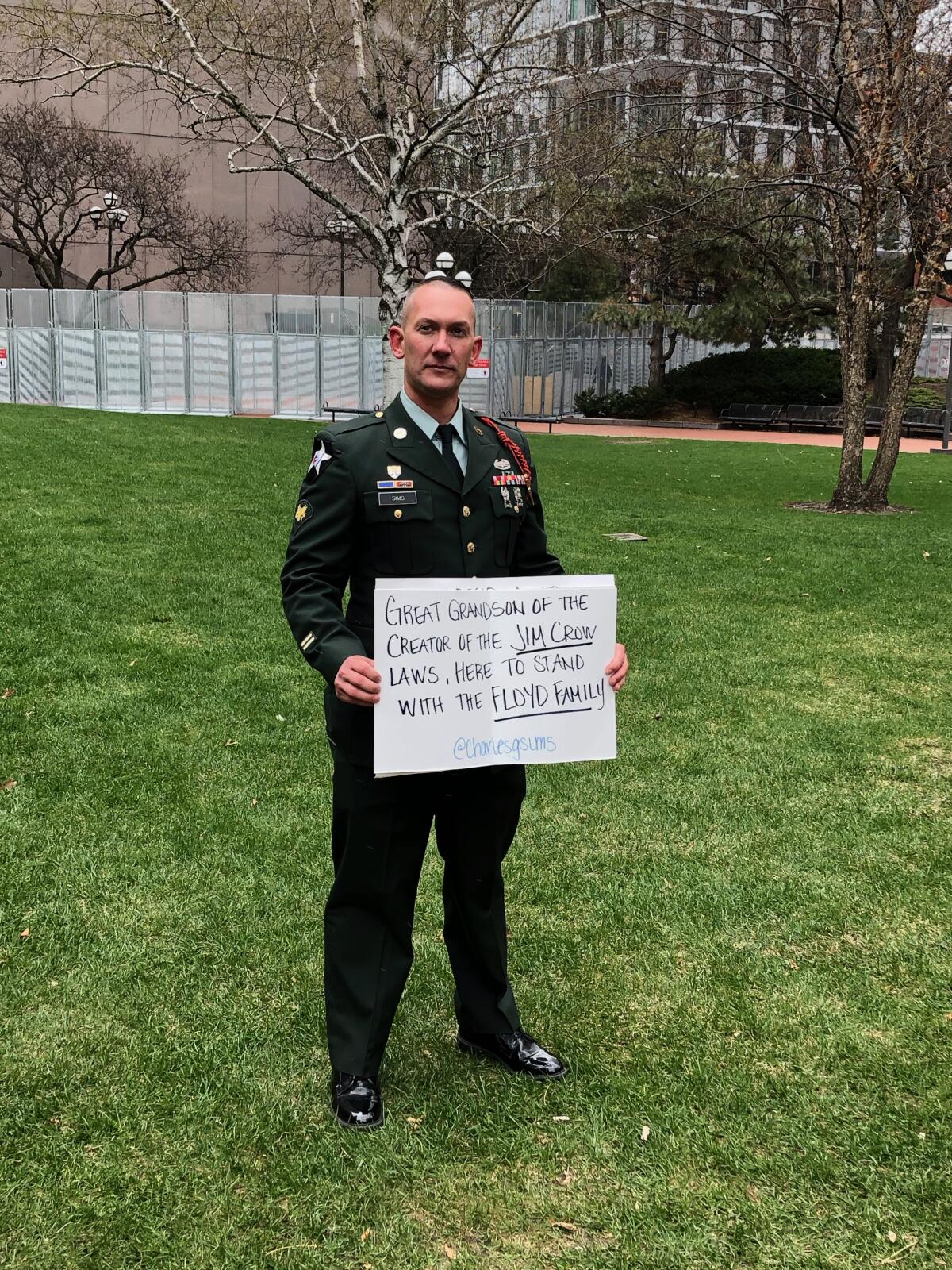
Sims saw Floyd’s family and wasn’t able to meet them, but said he planned to follow up with one of their attorneys.
Across Minnesota, students staged a walkout Monday to protest racial injustice and another fatal police shooting of an unarmed Black man, Daunte Wright, 20, outside Minneapolis on April 11.
Principals and vice principals were with about hundred others as they marched to the courthouse to hang Black Lives Matter signs on the perimeter fence; they were led by Mauri Friestleben, principal at North Community High School. With Wright’s funeral scheduled Thursday and the verdict pending, Minneapolis public schools canceled in-person classes Wednesday through Friday.
Friestleben posted a sign on the fence that said, “Justice, mercy, humility.”
“We wanted the world to know we take responsibility. We’re saying not more,” she said.
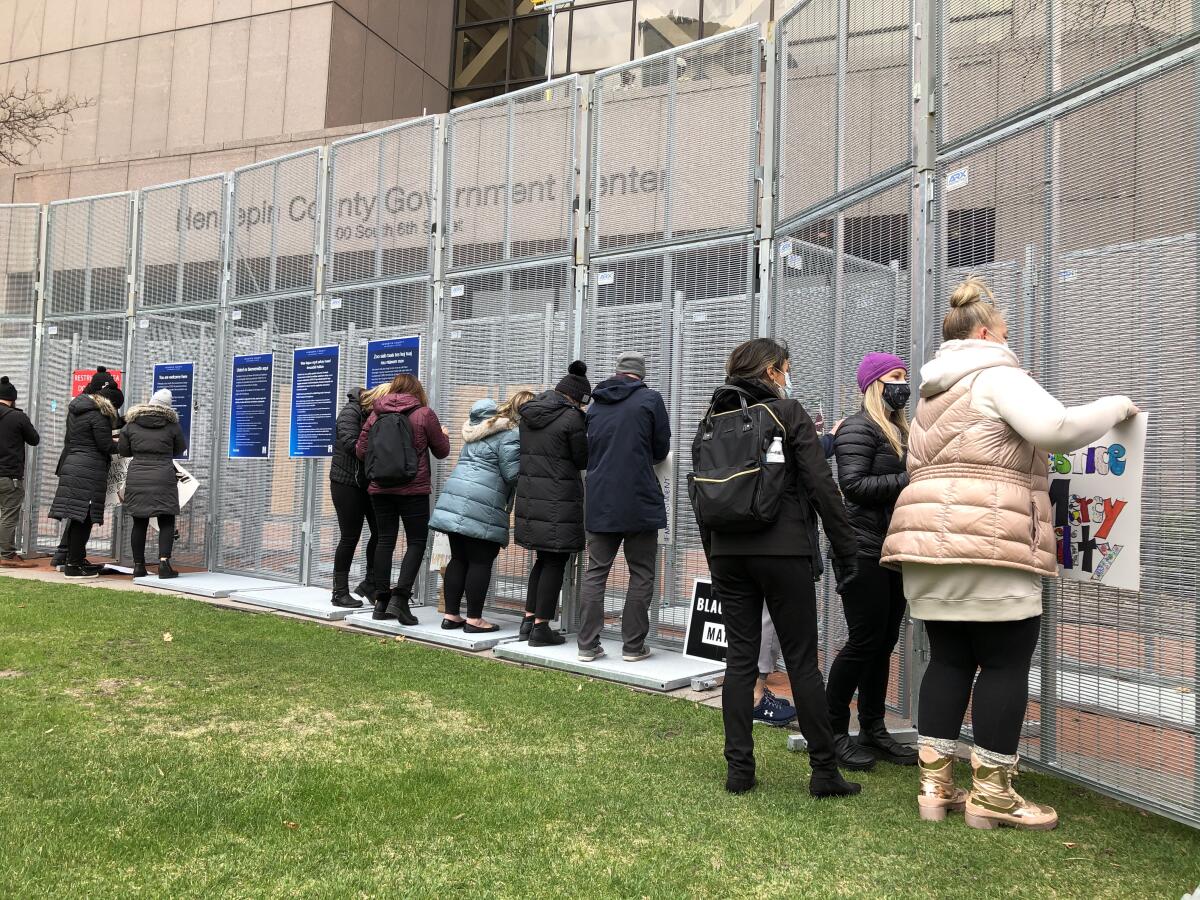
Some of her students who walked out also came to the courthouse afterward for an evening protest march.
“What happened was traumatic,” said ninth-grader Charlotte Simmons, 15, who is Black. “Daunte Wright was a Minneapolis public schools student a couple years ago. We could have gone to school with him.”
Psychotherapist Diane Brady-Leighton brought a new sign to the march that she made after watching the closing argument by Chauvin’s attorney: “Stop scapegoating! Mr. George Floyd and the brave bystanders are not on trial!”
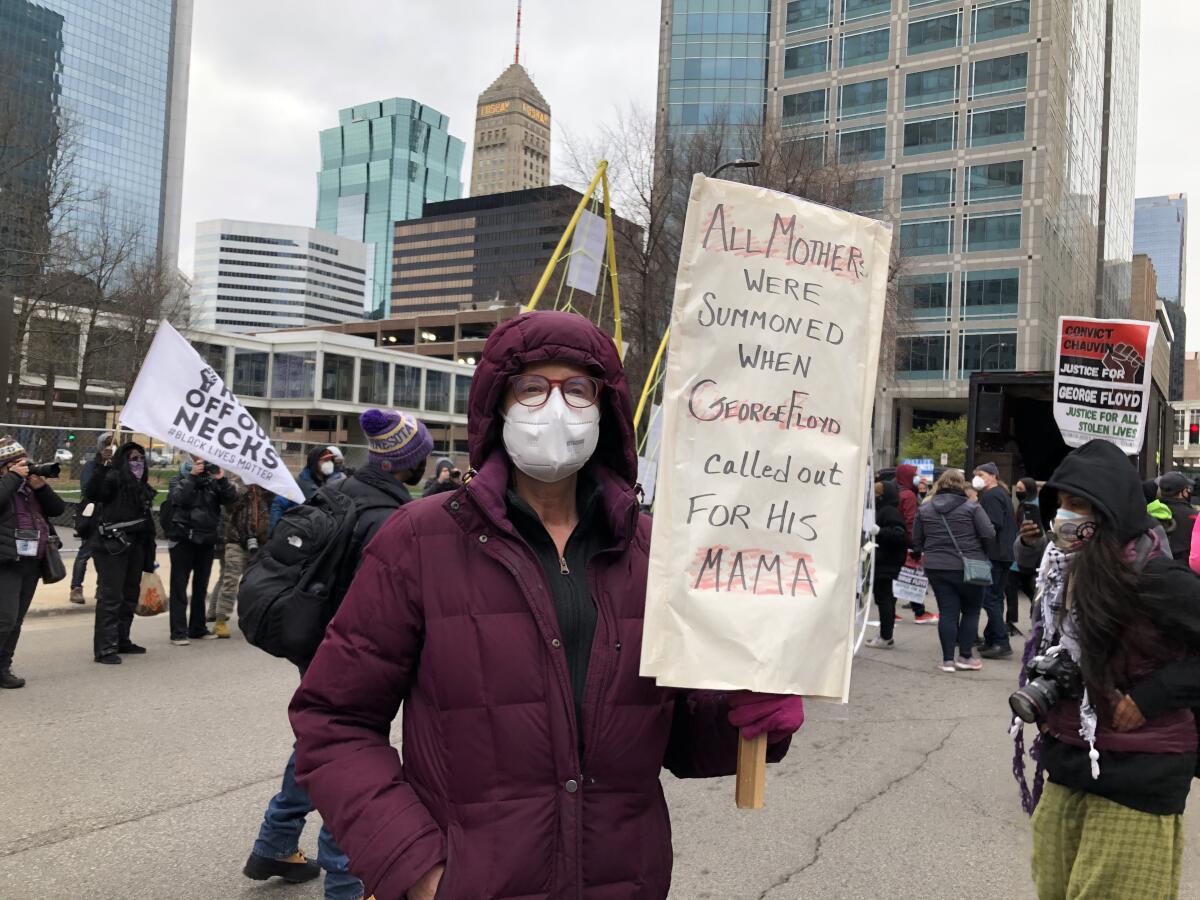
Brady-Leighton, 61, who is white, said she is hoping for a murder conviction.
“I want it to send a message that George Floyd’s life was taken unjustly,” she said.
But as she stood amid hundreds protesting outside the courthouse late Monday, Brady-Leighton said the case will affect the city long after the verdict is announced.
“Trauma ripples in the community,” she said. “It will be with us for years.”
More to Read
Sign up for Essential California
The most important California stories and recommendations in your inbox every morning.
You may occasionally receive promotional content from the Los Angeles Times.

